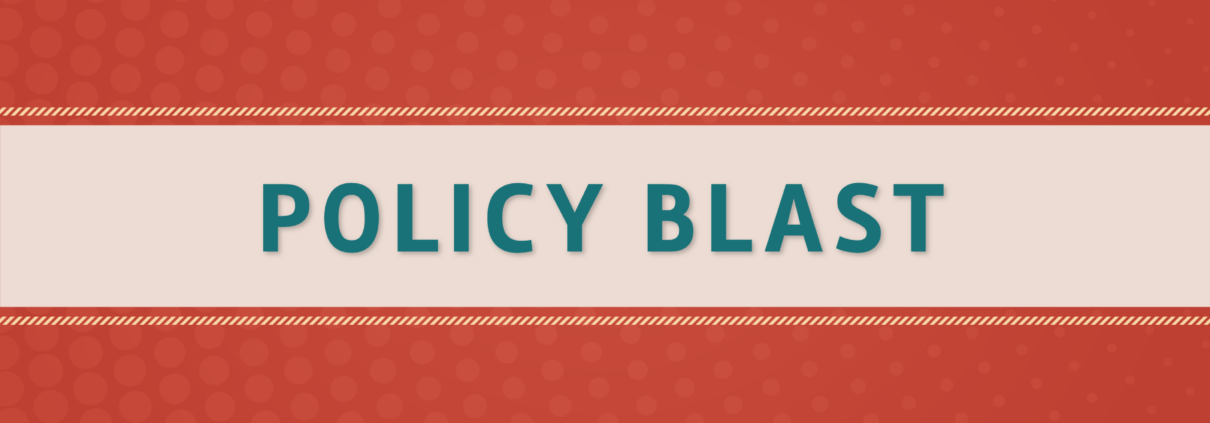SENATE RELEASES FY22 FUNDING BILLS WITH HISTORIC INCREASE FOR URBAN INDIAN HEALTH, INDIAN HEALTH SERVICE, ADVANCE APPROPRIATIONS, MMIW AND UIO FACILITY FIX
The Senate bill includes a $30 million increase above the FY21 enacted level for urban Indian health.
On October 11, 2021, the Senate Appropriations Committee released its fiscal year (FY) 2022 Interior, Environment, and Related Agencies bill, with $92.7 million for urban Indian health. The bill would authorize $7.61 billion for the Indian Health Service (IHS) for FY22, an increase of $1.38 billion above the FY21 enacted level and $593 million below the President’s request. Other key provisions include an additional $6.58 billion in advance appropriations to IHS for FY23 and a facilities fix to allow Urban Indian Organizations (UIOs) to use existing IHS funding for facilities improvement and renovations.
“After decades of being ignored and forgotten, we applaud the Senate Appropriations Committee for the robust legislation proposed to improve outcomes for Indian Country. We are especially encouraged to see the commitment to ensure equitable consideration for all Native communities. We are grateful for all Members of Congress who supported the request for full funding for Indian health, including urban Indian health, especially Senators Schatz, Feinstein, Murkowski, Tester, Moran, Merkley, Hoeven, Van Hollen, Heinrich, and Murray,” said NCUIH CEO Francys Crevier.
Background
The National Council of Urban Indian Health (NCUIH) and the Tribal Budget Formulation Workgroup (TBFWG) requested $12.759 billion for the Indian Health Service (IHS) with an urban Indian health line item of $200.5 million for FY 2022. Additionally, 28 Congressional leaders requested $200.5 million for urban Indian health in FY 2022 from the House Appropriations Committee.
House Appropriations Status
The House bill (HR 4372) included $200.5 million for urban Indian health and was advanced by subcommittee June 28, and $8.1 billion for the Indian Health Service. The measure was part of a seven-bill package the House passed on July 29.
Senate Bill Highlights
Appropriations Chairman Patrick Leahy stated in the bill summary, “The bill makes an unprecedented investment to fulfill the federal government’s treaty and trust responsibilities to Native Americans by providing $18.1 billion for tribal programs and – for the first time – securing advanced appropriations for the Indian Health Service (IHS). The advance appropriation for IHS for fiscal year 2023 will enable IHS to continue to provide health services without interruption or uncertainty, improving the quality of care and providing peace of mind for patients and medical providers.”
Indian Health Service
- $7,616,250,000 for IHS for fiscal year 2022, an increase of $1,379,971,000 to the enacted level and a decrease of $593,029,000 to the request
Urban Indian Health
- $92,684,000 for the Urban Indian Health program, $30,000,000 above the enacted level and $7,316,000 below the budget request.
Facilities Fix for Urban Indian Health
- “SEC. 435. The Secretary of Health and Human Services may authorize an urban Indian organization (as defined in section 4 of the Indian Health Care Improvement Act (25 U.S.C. 1603) that is awarded a grant or contract under title V of that Act (25 U.S.C. 1651 et seq.) to use funds provided in such grant or contract for minor renovations to facilities or construction or expansion of facilities, including leased facilities, to assist the urban Indian organization in meeting or maintaining standards issued by Federal or State governments or by accreditation organizations.”
Advance Appropriations for IHS
- $6,586,250,000 in advance appropriations for fiscal year 2023, equal to the fiscal year 2022 Committee recommendation in accordance with the Concurrent Resolution on the Budget for Fiscal Year 2022
- “The Committee recommendation also provides, for the first time, advanced appropriations for Indian Health Services and Indian Health Facilities. The bill includes $6,586,250,000 in advance appropriations for fiscal year 2023, equal to the fiscal year 2022 Committee recommendation in accordance with the Concurrent Resolution on the Budget for Fiscal Year 2022. The Committee recognizes that budget uncertainty due to temporary lapses of appropriations and continuing resolutions have an effect on the orderly operations of critical healthcare programs for Native American communities. Existing challenges related to recruitment and retention of healthcare providers, administrative burden and costs, and financial effects on Tribes were identified areas of concern in a Government Accountability Office [GAO] study (GAO–18–652).”
Contract Support Costs and 105(l) Leases
- “The Committee strongly supports revising the budgetary classification for Contract Support Costs and Payments for Tribal Leases with the goal of including the language needed to codify such a change in the final appropriations Act for fiscal year 2022.”
Bureau of Indian Affairs – Missing and Murdered Indigenous Women
- Missing and Murdered Indigenous Women: $24.9 million
- “The Committee is concerned about the crisis of missing, trafficked, and murdered indigenous women that has plagued Native communities. Native American women face high rates of violence and the lack of data on the number of women and girls who go missing or murdered further complicates the Nation’s ability to address this crisis. The Committee recommendation includes both funding and directives under the Bureau of Indian Affairs and the Indian Health Service in order to improve the Federal response to this epidemic.”
- Note: It is unclear at this time if UIOs would be eligible for the funding resources provided to IHS under this provision.
Bureau of Indian Education – Native Boarding School Initiative
- Native Boarding School Initiative: $7 million
“In June 2021, the Department announced an investigation into the Federal government’s past oversight of Native boarding schools. The past policies of forcing children into these schools tore families apart and led to a loss of culture and identity for generations of Native American youth. The Committee applauds the efforts of the Department to reexamine this era and looks forward to the findings. The bill provides $7,000,000 for these efforts.”
Next Steps
Congress is likely to pass another continuing resolution before the current spending expires on December 3, 2021. If Democrats quickly begin “top-line” budget negotiations, it’s possible they could pass an omnibus funding package in the Senate.










Leave a Reply
Want to join the discussion?Feel free to contribute!